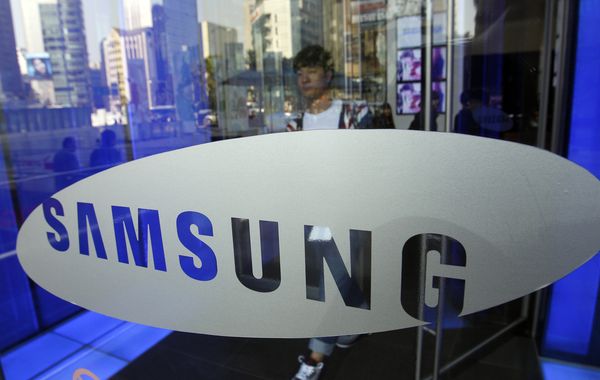Adamant to strengthen its portfolio of wireless patents (that seem to be all the rage these days) and help differentiate its smartphone and mobile chip businesses, Samsung ponied up $310 million for the mobile business of Cambridge Silicon Radio (CSR) PLC, based out in Cambridge, United Kingdom.
With this transaction due for completion by the fourth quarter this year, Samsung will control CSR’s patents related to Bluetooth, WiFi and GPS and obtain interesting handset technology that could help differentiate its flagship smartphones.
Samsung is of course embroiled in patent fights with Apple in courts across the world. At the same time, the company dedicates substantial resources to fabbing mobile chips found inside Apple’s iOS devices.
Samsung appears keen on taking advantage of CSR’s research and development capability as it looks to improve its own mobile chips, possibly leading to unique hardware features down the road…
Jung-Ah Lee reports for The Wall Street Journal from Seoul, South Korea:
South Korea’s Samsung Electronics Co. has acquired the mobile-technology business of U.K.-based Cambridge Silicon Radio PLC for $310 million, as the smartphone giant seeks technology and patents to ensure its mobile chip and handset businesses stay competitive.
Through this acquisition, Samsung obtained CSR’s handset connectivity and handset location technology, in addition to CSR’s 21 wireless technology patents filed in the United States. It’s also buying $34.4 million of CSR shares “to strengthen its ties” with the U.K. firm.
This brings to memory Apple, which now has a 9.2 percent stake in Imagination Technologies, a fabless British mobile graphics maker whose PowerVR GPUs power graphics in Apple’s A4/A5 processors. Apple’s ownership stake is also geared towards securing a key piece of technology that goes into the iPhone and iPad.
310 out of 2,547 CSR employees will move to Samsung as a result of this acquisition. Samsung has made its intentions known: this is an important technology transfer that will help advance custom chips ticking inside the company’s popular mobile devices, namely the Galaxy lineup of smartphones and tablets.
Should Apple be worried?
Not for the time being, though it would seem Samsung is taking a page from Apple’s book here. Cupertino over the past few years acquired several fabless semiconductor makers, including PA Semi and Intrinsity. As a result of both acquisitions, Apple set up a chip design unit that has since grown to over a thousand employees who customize mobile application processors.
Apple then outsources silicon manufacturing to Samsung, who gets to fab Ax-series of chips according to Cupertino’s blueprints. Why outsource? Because fabbing chips is a hell of an expensive and risky biz. Besides, nothing beats Samsung’s manufacturing capabilities, yields or the ability to ramp up production of mobile chips in response to demand.
The South Korean company sold 50 million smartphones in the June quarter alone, most of which run mobile chips Samsung developed and produced itself. That’s on top of tens of millions of Ax-series chips Samsung builds each month for Apple. Henceforth, its ability to mass-produce mobile chips at acceptable yield rates and fair prices is the chief reason why Cupertino still relies on Samsung to fab custom silicon for iPhones, iPods and iPods.
And for all the talk of Apple dropping Samsung in favor of TSMC and order stoppage rumors, Samsung’s components arm still enjoys the confidence of Tim Cook who continues to entrust them with chip making contracts worth billions of dollars.
Samsung Austin Semiconductor, a factory complex in Austin, Texas (the state’s largest foreign investment), makes high-precision microchips for clients like Apple
This quote from CSR CEO Joep van Beurden is also telling:
I believe that under Samsung’s ownership, the handset operations will be in a better position to prosper in the global handset market.
Indeed.
Though no immediate danger looms, Apple should keep in mind that Samsung’s semiconductor-related acquisitions will eventually improve the Galaxy maker’s ability to advance its custom chips with unique hardware features not available to anyone else.
Stephen Woo, president of System LSI Business at Samsung Electronics:
By leveraging CSR’s research and development capability, Samsung will strengthen its application processor platform.
This is the strategy Apple’s been pursuing for five years with the A4/A5 chips and it’s been serving the company well. If Samsung catches up in this regard, any differentiating features stemming from Apple’s customized silicon will no longer apply as Samsung will likely have them on its drawing board as well.
Thoughts?

